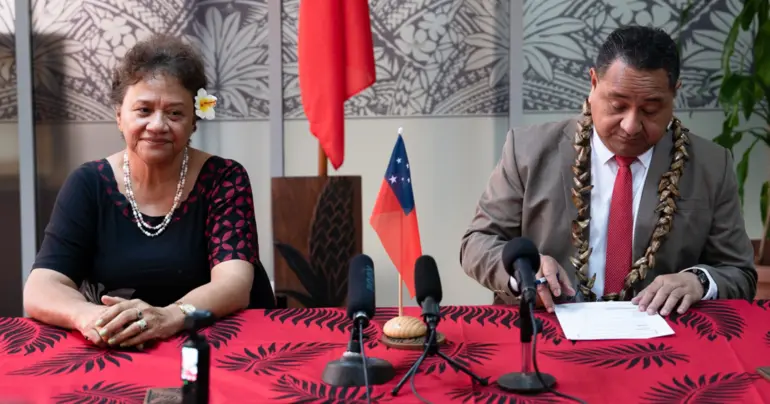Women with disabilities experience more discrimination
A UN Women and UNDP joint project has put the spotlight on women with disabilities in Samoa, saying they experience more stigma and discrimination compared to their male peers.
Samoa's UN Women Country Programme Coordinator, Mele Mauala said in a recent social media post that the UN Women and UNDP [United Nations Development Programme] joint project has found that in comparison to men with disabilities in Samoa, "women with disabilities are twice less likely to be employed and are at greater risk of suffering gender-based and sexual violence".
She also said 20 per cent of women in the world have some form of disability, and in Samoa, 100 per cent of women with disabilities (WWD) have experienced some form of gender-based violence (GBV).
"They encounter intersecting and multiple forms of discrimination arising from gender and disability, to age, economic status, religion, indigenous identity, and race, among others," Ms. Mauala said in her post. "These conditions further catalyse their exclusive. The impact of stigma and discrimination on people with disabilities – especially women – has long been recognised."
The current challenge that is facing donor agencies in Samoa is access to "good data", which the UN Women Country Programme Coordinator says is yet to be developed.
"Yet, we still lack good data, partly because we have not yet developed robust and internationally-recognised tools to understand disability stigma experienced in different areas of life, opportunities and its impact on wellbeing."
The lack of data in Samoa is also impacting the ability of donor agencies as well as the relevant local agencies to respond effectively, with Ms. Mauala saying their efforts thus far are only going as far as "awareness-raising".
"And our response too often stops at awareness-raising, rather than approaches that have shown a positive impact in changing the underlying determinants that drive and perpetuate stigma and discrimination," she said.
According to the UN Women Country Programme Coordinator, UNDP and UN Women, through the joint project ‘Addressing Stigma and Discrimination against Women with Disabilities’ (ASDWD) sought to learn how to tackle these issues.
She said with the support of the UN Partnership on the Rights of Persons with Disabilities, UNDP’s Global Programme on Strengthening the Rule of Law and Human Rights for Sustaining Peace and Fostering Development, and UN-Women’s Global Portfolio on Disability Inclusion and Intersectionality, they will develop tools to capture the stigmatising experience and its impact on women with disabilities.
"The project was piloted in Moldova, Pakistan, Palestine and Samoa, and focused on approaches to changing attitudes and behaviour, as key steps towards creating an inclusive society.
"The project accomplished this in close partnership with women with disabilities. It also focused on violence perpetrated against women and girls with disabilities, with research on disability-related stigma."
Ms. Mauala added that the UN Women is grateful for the partnerships with NOLA, the Ministry of Women, Community and Social Development, and Samoa's disability sector for the collection of much-needed data and for creating knowledge products for community engagement.
"Prejudices and stereotypes hold many of us back from fulfilling our potential and leading lives as free and equal citizens," she said. "People with disabilities struggle to get equal access to education, healthcare, jobs and housing because of those prejudices and stereotypes lower expectations for them.
"Many see them as objects of pity or charity, some see their predicament as a curse, or a shame to be kept out of sight."











